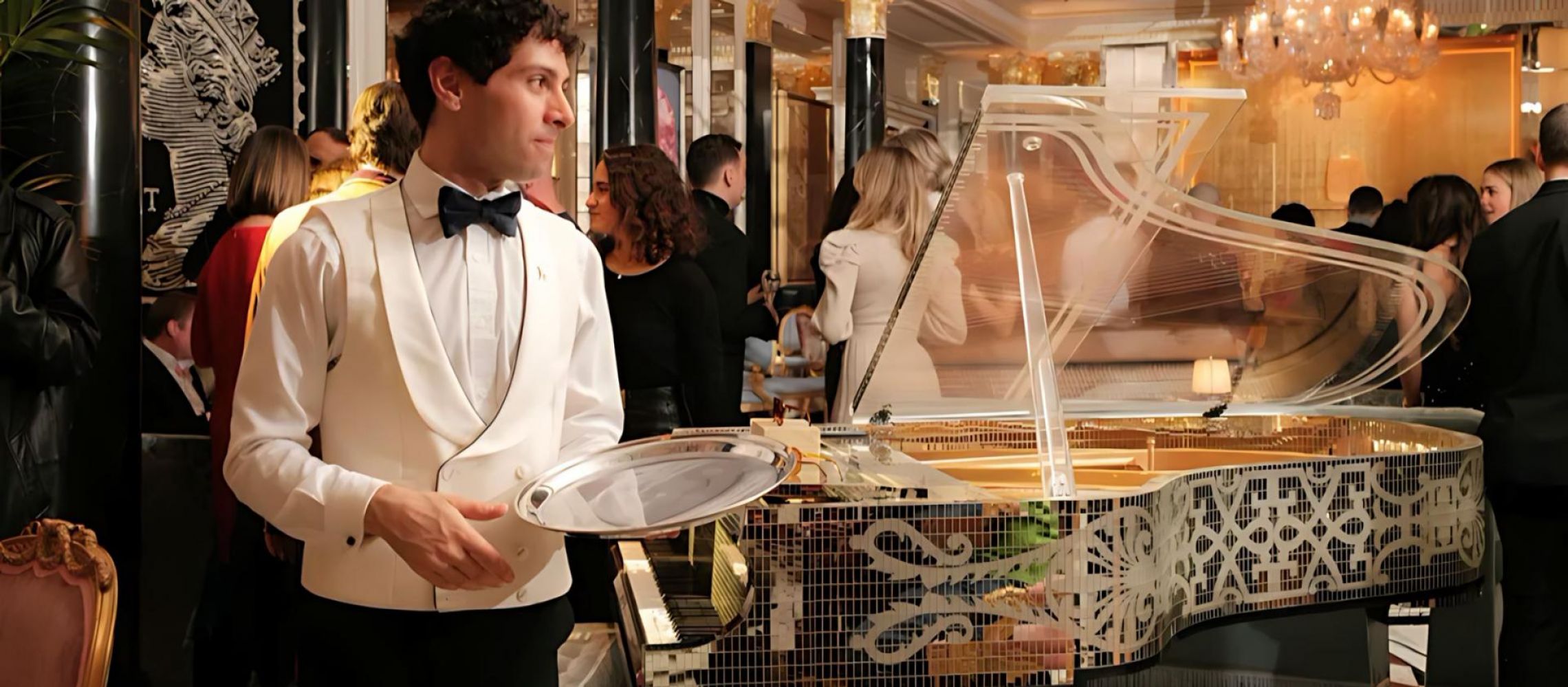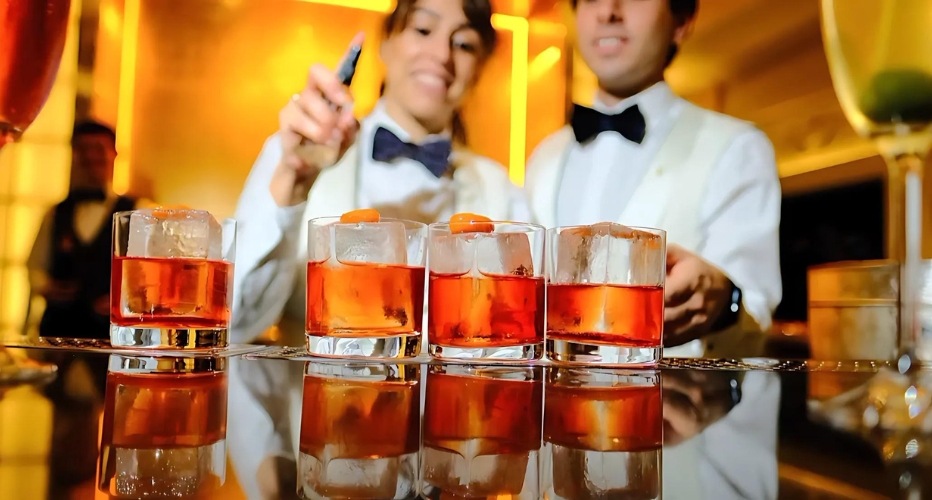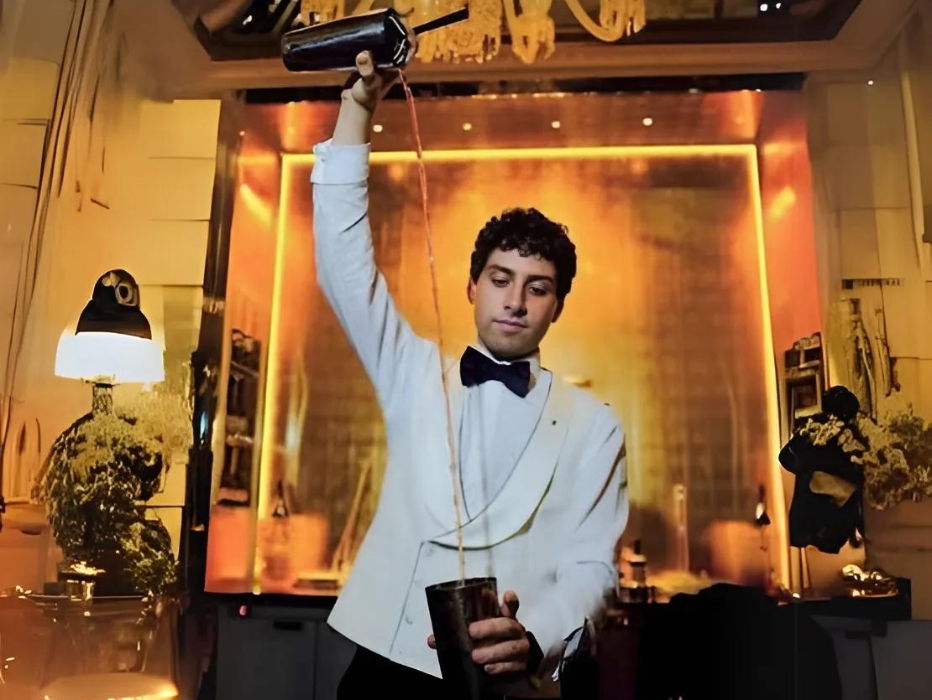Submission Deadline
28 February 2026
Judging
Date
24 & 25 March 2026
Winners Announcement
22 April 2026
28 February 2026
24 & 25 March 2026
22 April 2026

London Spirits Competition chats with Matteo Torresin from The Dorchester Hotel in London about his take on bartending and the essential skills needed for today's service.
I started bartending once in London and immediately fell in love with the hospitality world. I was mostly fascinated by the history of cocktails and products, but mixing drinks behind the bar was a thrilling experience.
I started my professional development while working as a bartender for a popular cocktail bar in Mayfair. Passion and a personal interest quickly allowed me to step foot behind the bar. Communities such as WSET helped form my knowledge, as did frequent training organised by brands to inform us about their products.
Besides the fundamental technical skills, elegance and poise are also very important especially when working in luxury bars. Moreover, qualities such as respect and humility in my opinion are too important to be overlooked.
Every bartender should also to some extent be a good conversationalist as it’s such a big part of the profession.
Nowadays producers come out with a plethora of new products every other week. The reasoning behind my picks reflects the environment and the nature of the bar I'm working, as well as trends I might pick up from the industry. Sustainability and innovation are also important factors when buying a new product. But I think that lastly is about a personal preference for certain brands.

Besides social media and articles from drinks and dedicated magazines, it can be beneficial to visit venues and stay in contact with other professionals.
Most times before creating a cocktail it’s important to envision where the drink is going to be featured. The context is as important as the drink itself in my opinion.
Once decided, the ingredients are mostly based on seasonality as well as the nature of the drink itself. Inspiration can come from different aspects. Lately, I’ve been keeping a close look at Michelin-starred chefs and their creations inspired mine.

Matteo Torresin
Working in close proximity with the Promenade at the Dorchester where afternoon tea is served daily means I get to try premium tea blends. Working with such ingredients might not be innovative, but it’s a practice I find interesting and rewarding. Other ingredients I’m currently watching closely are some Japanese liqueurs produced by Godo Shushei Co (their tomato liqueur is phenomenal) as well as small villages’ mezcals. Lately, I’ve been looking into English-produced bitters, and vermouth and Sipello as well as Sacred Vermouth (amber) are among my top choices.
Certainly, eco-sustainability is one. Using discarded products to create something new is an example of this. I am seeing a growing symbiosis between kitchen team and the bar team, regarding cocktails as highly as wine for a food pairing.
But I’m amazed by the ability of bar teams to create cocktail menus that transcend the individual cocktail and a
I’ve seen the growing popularity of the so-called “forgotten spirits”. Green chartreuse has seen a huge rise in popularity for instance (even leading to a shortage in the market!!); mezcal, poteen, baiju, as well as amaro, are some of the spirits that are finally getting some exposure and recognition.
Moreover discerning customers are now looking for more of a symbiosis between food and drinks. Cocktails are now paired with bar snacks and people seem to look for opportunities to enjoy a cocktail with a selection of aperitivo-style food.
The huge success of these products derives from filling the gap in a market that used to offer only soft drinks and juices to non-drinkers. Now, companies such as Everleaf, to name one, are offering a choice to customers who want a drink without the necessity of having alcohol. Great innovation on this front brought a huge variety to a market that deserves it fully.
It wildly depends on the situation, but unfortunately, confrontational customers are so common in this profession that trainings are put in place in order to mediate situations that otherwise could take a swift wrong turn. As a general rule, I’d say having a good disposition is fundamental. Losing your temper can be incredibly damaging. A conversation can initiate and if everything else fails…security is as quick as bunnies.
Of great importance, eco-sustainability is a practice very dear to me. Single-use plastic is not employed anymore but it doesn’t stop there. We use cleaning products that are sustainable for the environment as well as trying our best to reduce wastage and whenever possible I try to reuse ingredients and bring these back to life in another form. For instance, we infuse Campari with coca nibs that are later dried, mixed with flour, and baked into a tuille to use as a garnish. Employing similar practices is only a small step, but one I'm very happy to take.
[[relatedPurchasesItems-63]]
I see more regularly bartenders leap out from behind the bar and have more presence on the floor as a waiter would. I wouldn’t be surprised to see the two positions merge into one, having bar staff serving their creations and being on the front line when dealing with customers not only at the bar counter.
It’s a thrilling job! Sometimes it can be challenging, but it’s incredibly rewarding. Study your classic cocktails and learn about their history. It’s not all about mixing drinks, a lot of the work is done behind the scenes and I believe that’s the main difference between a bartender and a mixologist.
Also Read:
Listen to Luca Cicalese: Why Winning at the London Spirits Competition Matters for any Spirits Brand
Pioneering Change: Claudia on Leading the UK Bartenders Guild as Its First Female President
Listen to Michele Becatti: Why Winning at the London Spirits Competition Matters for Spirits Brand
Show your spirits where it matters. Get your products tasted by top bartenders, buyers and experts at the London Competitions — enter now.